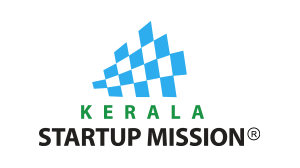Our Approach
In today’s rapidly changing business landscape, agility is no longer a nice-to-have, but a must-have for organizations that want to stay competitive. Enterprise agility is the ability to respond quickly and effectively to changes in the market, customer needs, and emerging trends. It requires an organization to be flexible, adaptable, and responsive, with a culture that promotes innovation, collaboration, and continuous improvement.
At Calpar Global, we recognize the importance of enterprise agility, and we help our clients develop strategies that enable them to respond quickly and effectively to changing market conditions. Our approach to enterprise agility focuses on three key areas: creating an agile culture, implementing agile methodologies, and leveraging technology.
Creating an Agile Culture
The first step in developing enterprise agility is creating an agile culture. This involves establishing a mindset that values innovation, collaboration, and continuous learning. It also involves creating an environment that fosters experimentation, risk-taking, and the willingness to try new things. At Calpar Global, we help organizations develop an agile mindset by providing training and coaching to employees at all levels. We also work with organizations to develop processes that promote collaboration, such as cross-functional teams and open communication channels.
Implementing Agile Methodologies
Once an organization has established an agile culture, the next step is to implement agile methodologies. Agile methodologies such as Scrum, Kanban, and Lean focus on delivering value to customers quickly and efficiently. These methodologies emphasize iterative development, continuous feedback, and the ability to respond quickly to changing requirements. At Calpar Global, we help organizations adopt agile methodologies by providing training and coaching to teams. We also work with organizations to develop processes that align with agile principles, such as continuous integration and delivery.
Leveraging Technology
The third key area for enterprise agility is leveraging technology. Technology can help organizations streamline their operations, automate processes, and respond quickly to changes in the market. For example, cloud computing can help organizations scale their infrastructure quickly to meet changing demand, while DevOps can help organizations automate their software delivery processes. At Calpar Global, we help organizations leverage technology by providing guidance and support for technology adoption. We also help organizations develop processes that align with technology capabilities, such as continuous testing and monitoring.




